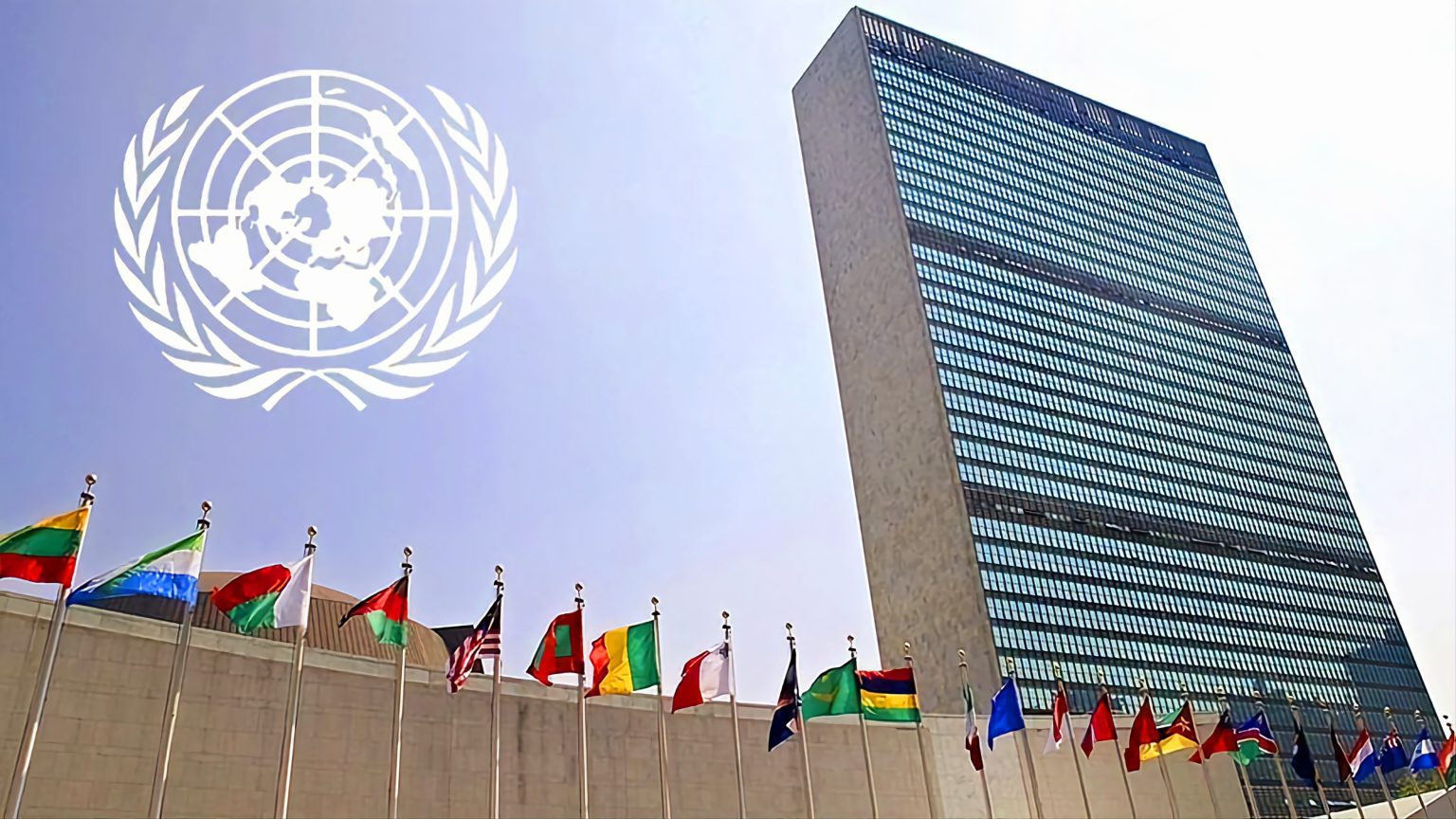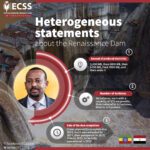As the Israeli assault on the Gaza Strip stretches into its sixth month since October 7, 2023, the rate of Israeli transgressions of various forms of humanitarian law is increasing at an alarming rate, eventually reaching the level of war crimes. In reaction to these practices, there has been an unprecedented escalation against Israel on both the international and UN levels, which is leading to a tightening of international isolation against Israel. The US government, which had been strongly behind Israel’s military efforts since the onset of the conflict, has recently come into conflict with the radical Israeli government, leading Yedioth Ahronoth to claim, in a recent report, that this tension amounts to a level of estrangement. In this context, Francesca Albanese, the UN Special Rapporteur on the Occupied Palestinian Territories, presented her report to the Human Rights Council in Geneva concerning Israel’s perpetration of genocide crimes against the Palestinian population.
This paper aims to provide insight into the rationale and notable aspects that were included in the UN special rapporteur report on Gaza, as well as the consequences it entailed and the potential outcomes it might have, particularly in relation to the current state of international isolation against Israel.
Rationale behind the UN Report
Francesca Albanese, the UN Special Rapporteur on the Occupied Palestinian Territories, presented her report titled “Anatomy of a Genocide” to the Human Rights Council in Geneva on March 26, 2024. The report focuses on the Israeli military activities that have taken place in the Gaza Strip. The report’s most significant elements may be specified as follows:
- The UN rapporteur concluded that there are reasonable grounds to conclude that the threshold indicating Israel’s commission of genocide is met, noting that numerous logical indicators suggest that Israel has perpetrated multiple acts of genocide in the Gaza Strip.
- The UN rapporteur asserted that the scale and nature of the Israeli assault on Gaza, as well as the resulting deplorable living conditions, indicate a deliberate intention to annihilate the lives of Palestinians. She further affirmed that Israel has been implicated in numerous ongoing crimes and violations against the Palestinians, including the apartheid crime.
- The UN rapporteur listed three different categories of genocide that Israel had perpetrated, namely killing members of the group, causing serious bodily or mental harm to members of the group, and deliberately inflicting on the group conditions of life calculated to bring about its physical destruction in whole or in part
- The UN rapporteur urged the implementation of all necessary measures to protect Palestinians’ right to life and put an end to crimes against them, adding that “there are reasonable grounds to believe that the threshold indicating Israel’s commission of genocide is met.”
Significant Implications
1. The significance of the UN Special Rapporteur on the Occupied Palestinian Territories is related to two primary factors, namely personal and objective considerations. Regarding the personal consideration, Francesca Albanese is a renowned international expert with extensive expertise in the Palestinian issue. In addition to her many UN positions, she is affiliated with the Institute for the Study of International Migration at Georgetown University and a senior advisor on migration and forced displacement at a specialized research center affiliated with the Arab Renaissance for Democracy and Development organization, where she co-founded the Global Network on the Question of Palestine that brings together eminent experts and academics on the Israeli-Palestinian conflict, which lends greater credibility to the UN Rapporteur’s findings. The objective consideration pertains to the specific context in which the report is situated. The report is presented in a context dominated by a growing international tendency to condemn Israel, the presence of what appears to be an international blockade on the occupation, and the ongoing legal proceedings in the International Court of Justice. This implies that the report serves as supplementary pressure from the United Nations against Israel.
2. Albanese’s report presented significant objective arguments, one of which was that Israel engages in apartheidism towards the Palestinian population. The significance of this designation lies in the fact that it necessitates international responsibility for this crime, as outlined in the UN Convention, the Rome Statute of the International Criminal Court (which drives the ICC’s operations), and the International Convention on the Suppression and Punishment of the Crime of Apartheid. Furthermore, according to these agreements and treaties, apartheid is regarded as an international offence, with the objective of establishing and upholding the supremacy of one group over another through systematic and varied policies. This implies that the UN report recognizes Israel’s clear breach of public international law and its non-compliance with the regulations governing it and the international human rights law. Consequently, this recognition can serve as a foundation for UN and international efforts to hold Israel accountable for engaging in apartheid.
3. Israel has engaged in various forms of apartheid against the Palestinian people, such as war crimes in the Gaza Strip, particularly in relation to the uprooting of Palestinians, the separation of Gaza from the West Bank and Jerusalem, the imposition of stringent limitations on the right to travel freely in the West Bank due to the several military checkpoints and road closures, the unfair treatment of Palestinians in favor of privileges to the Jews, the systematic refusal to grant building permits to Palestinians in East Jerusalem, resulting in forced evictions and repeated home demolitions, the unprecedented growth of settlement activities, and the denial of Palestinian refugees’ right to return to their homes protected under international law as Israel obstructs the return of displaced Palestinian families to their villages or former homes in Israel and the occupied Palestinian territories with the intention of maintaining demographic dominance and infringes upon the Palestinian people’s right to self-determination. All of these violations fall under the umbrella of apartheid.
4. The UN Special Rapporteur on the Occupied Palestinian Territories implicitly acknowledged certain significant humanitarian considerations in her report. Notably, she emphasized Israel’s strategic utilization of hunger or starvation against the Palestinians as a means to increase pressure on them and hinted that Israel was to blame for the blockade that prevents humanitarian aid from reaching the Gaza Strip. The recognition follows significant remarks made by the Secretary-General of the United Nations, Antonio Guterres, during his visit to Egypt. Guterres commended Egypt’s ongoing efforts and consistent opening of the Rafah crossing, emphasizing its effectiveness in facilitating the transportation of humanitarian supplies. He also held Israel accountable for the worsening humanitarian conditions in the Gaza Strip.
5. The UN Special Rapporteur on the Occupied Palestinian Territories has confirmed in her report that Israel fulfils all the criteria that supports the hypothesis that Israel has committed war crimes against the Palestinian people. Consequently, the credibility of accusing Israel of genocide in the International Court of Justice is strengthened, meaning this significant report will serve as a key foundation for anti-Israel countries in their future arguments before the International Court.
Potential Consequences
The most recent report by the United Nations Special Rapporteur on the Occupied Palestinian Territories levies allegations against Israel, contending that it, on the one hand, implemented apartheid and, on the other, perpetrated genocide against the Palestinian people. This accusation could potentially result in significant international repercussions, the most prominent of which are as follows:
1. The International Criminal Court’s action against Israel has the potential to be seen as a significant escalation, particularly because it was prompted by the demands of several countries and human rights organizations. Last November, Karim Khan, the Prosecutor of the International Criminal Court, announced that he had received a collective request from five countries to conduct an investigation into the conditions prevailing in the Palestinian territories. Khan indicated that the request was initiated by South Africa, Bangladesh, Bolivia, the Comoros, and Djibouti. At the time, South Africa stated that the request was made to ensure that the International Criminal Court addressed the perilous situation in Palestine with immediate attention.
2. One potential consequence of this UN report is the implementation of specific actions against Israeli individuals, whether they are government officials or settlers. These actions may include targeted sanctions, such as travel restrictions and freezing of assets, against those Israeli officials who are most implicated in the crime of apartheid. Additionally, there may be a comprehensive ban on the provision of weapons to Israel to prevent the commission of war crimes and other serious violations.
3. Albanese’s report serves as further recognition from a senior UN official of the magnitude of Israeli offences in the Gaza Strip and Palestinian territories. This may lead the High Commissioner for Human Rights to implement more stringent actions against Israel, aimed at addressing and challenging Israeli practices. These measures will serve as a legal foundation for other UN bodies’, such as the Security Council, to enact actions against Israel.
In short, one could argue that the recent report presented to the Human Rights Council in Geneva by Francesca Albanese, the United Nations Rapporteur for the Palestinian Territories, holds significant merit due to its comprehensive examination of several critical factors and truths, including Israel’s apartheid policies and the perpetration of genocide against the Palestinian people in the Gaza Strip. This stigma is an admission that the Israeli government operates as an apartheid state. Widespread legal action against Israel will ensue, whether it be in front of the International Criminal Court, the International Court of Justice, or other international tribunals.













